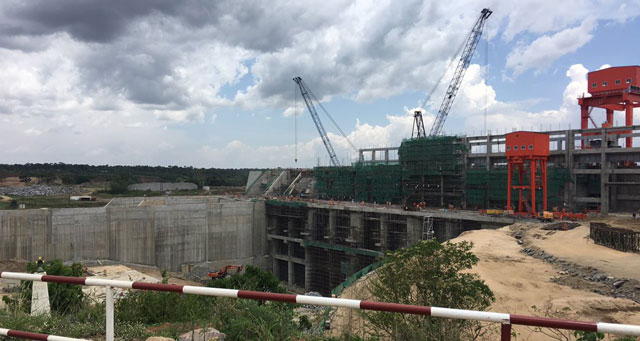
Karuma, Isimba hydropower projects to add 783MW
Kampala, Uganda | JULIUS BUSINGE | Uganda’s electricity supply is expected to increase later this year as government switches on Isimba and Karuma hydropower dams amidst low electricity demand.
The government is set to launch Isimba (183MW) and Karuma (600MW) hydropower dams – whose constructions are at 75% and 71% completion – in August and December, respectively. The two dams are expected to cost government approx. US$2bn.
At the moment, the country’s electricity installed capacity stands at about 850MW, with Bujagali Energy Limited alone generating 250MW and the rest by Kiira, Nalubale and other small power stations.
Proscovia Njuki, the chairperson, Board of Directors at the Uganda Electricity Generation Company Limited (UEGCL) told The Independent on the sidelines of the launch of the company’s five year strategic plan on Dec.15 that they are optimistic that the timelines for the launch of the two power dams would be met.
She said there are supporting factors including having a technical and competent human resource base and the continued BOD’s on spot supervision and monitoring of the projects.
“We continue to get support from government agencies [ministry of energy and finance] which we hope will help us achieve our plans,” Njuki said, adding that the government agency also plans to ensure efficient operations at the Kiira/Nalubaale hydropower complex.
This comes at the time the government has also agreed to all the demands of the financiers of Bujagali hydropower dam – World Bank’s International Finance Corporation, African Development Bank, Netherlands Development Finance, Proparco, European Investment Bank and KfW – which includes extending loan repayment period and a tax waiver as a measure to bring down the cost of electricity.
TheUS$900million loan facility, which was to be paid by 2023, is reported to have been extended by 15 years and also availed a tax waiver over the same period for the tariffs to come down.
Government technocrats have always argued that the high electricity tariffs in the country are a result of high cost of generation to involvement of private-sector players seeking a return on investment.
The increase in electricity is expected to boost government’s efforts geared towards strengthening its competitiveness in the regional and global trade; wealth creation, jobs and ultimately accelerating general economic performance.
 The Independent Uganda: You get the Truth we Pay the Price
The Independent Uganda: You get the Truth we Pay the Price




I have noticed you don’t monetize your blog, don’t waste your
traffic, you can earn additional bucks every month because you’ve got high quality content.
If you want to know how to make extra $$$, search for: Ercannou’s essential tools best adsense alternative